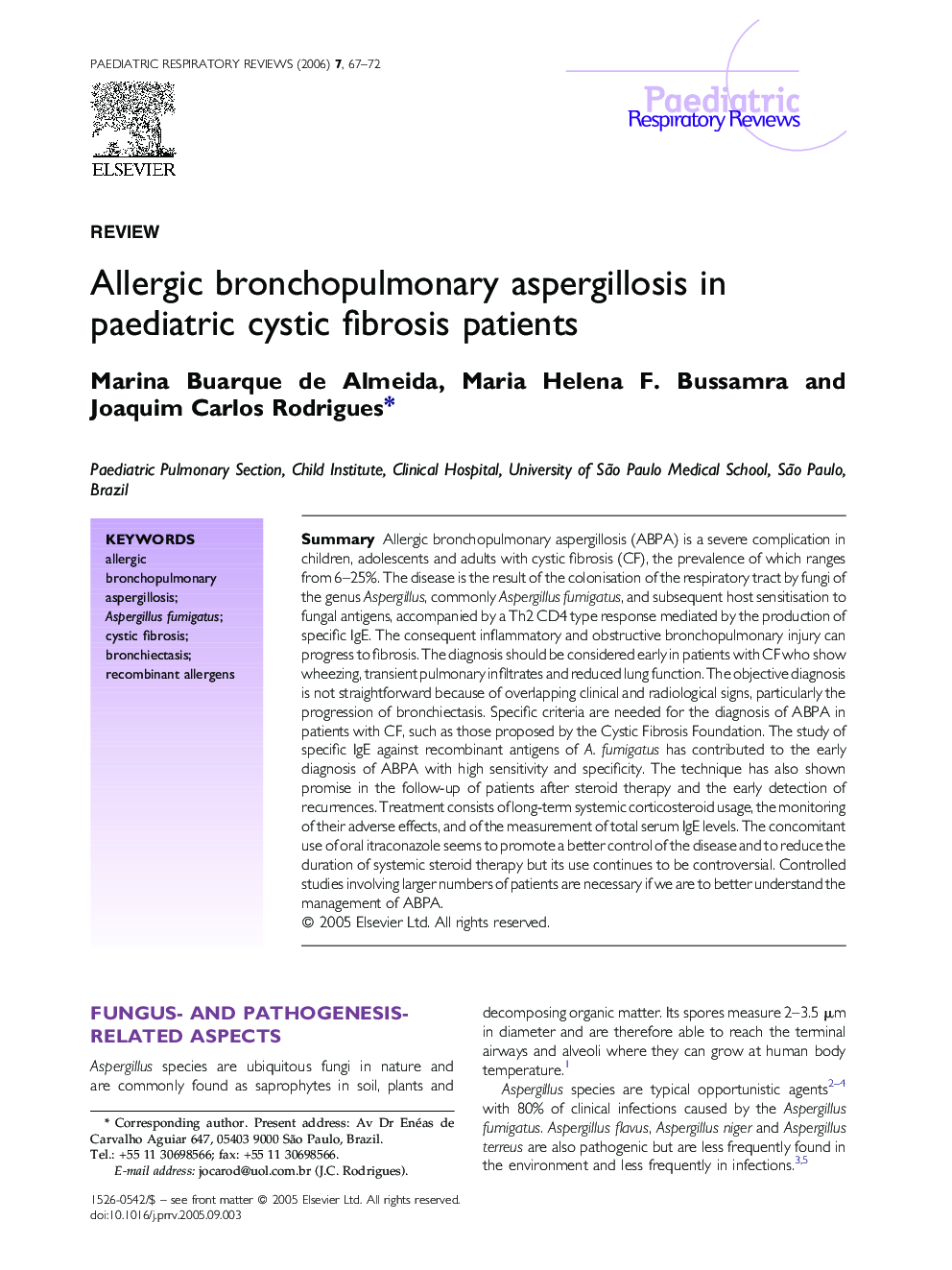| Article ID | Journal | Published Year | Pages | File Type |
|---|---|---|---|---|
| 4171739 | Paediatric Respiratory Reviews | 2006 | 6 Pages |
SummaryAllergic bronchopulmonary aspergillosis (ABPA) is a severe complication in children, adolescents and adults with cystic fibrosis (CF), the prevalence of which ranges from 6–25%. The disease is the result of the colonisation of the respiratory tract by fungi of the genus Aspergillus, commonly Aspergillus fumigatus, and subsequent host sensitisation to fungal antigens, accompanied by a Th2 CD4 type response mediated by the production of specific IgE. The consequent inflammatory and obstructive bronchopulmonary injury can progress to fibrosis. The diagnosis should be considered early in patients with CF who show wheezing, transient pulmonary infiltrates and reduced lung function. The objective diagnosis is not straightforward because of overlapping clinical and radiological signs, particularly the progression of bronchiectasis. Specific criteria are needed for the diagnosis of ABPA in patients with CF, such as those proposed by the Cystic Fibrosis Foundation. The study of specific IgE against recombinant antigens of A. fumigatus has contributed to the early diagnosis of ABPA with high sensitivity and specificity. The technique has also shown promise in the follow-up of patients after steroid therapy and the early detection of recurrences. Treatment consists of long-term systemic corticosteroid usage, the monitoring of their adverse effects, and of the measurement of total serum IgE levels. The concomitant use of oral itraconazole seems to promote a better control of the disease and to reduce the duration of systemic steroid therapy but its use continues to be controversial. Controlled studies involving larger numbers of patients are necessary if we are to better understand the management of ABPA.
